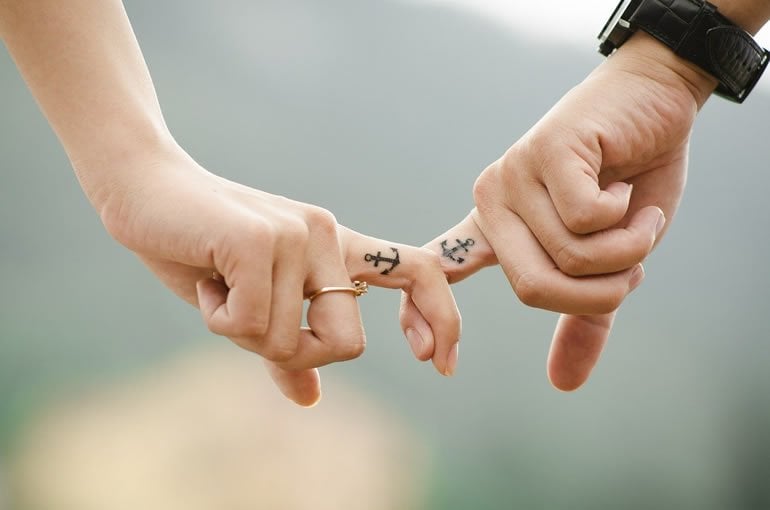Summary: Variations of CD38, a gene associated with attachment behaviors in humans and animals, may play a key role in relationship behaviors and perceptions that support bonding.
Source: Scientific Reports
Variations in a gene called CD38, which is involved in attachment behaviour in non-human animals, may be associated with human romantic relationship dynamics in daily life, according to a study published in Scientific Reports.
Jennifer Bartz, Gentina Sadikaj, and colleagues examined data on 111 heterosexual couples (222 individuals) who reported their social behaviour – which included smiling and laughing with others, making sarcastic comments, asking others to do something or giving in – their perception of their partner’s behavior, and their feelings during their interactions with one another over a 20-day period. Out of the 222 individuals 118 (65 women and 53 men) also provided genetic information.
The authors found that a variation of the CD38 gene – CD38.rs3796863 – was associated with an individual’s communal behavior, such as the expression of affection, in daily interactions with their romantic partner. CD38.rs3796863 has two variants (alleles): A and C. The gene can therefore be present as three combinations, or genotypes: AA, CC and AC. The authors found that individuals with the CC genotype reported higher communal behavior than individuals with AA or AC genotypes. Those with the CC genotype were also more likely to see their partner as behaving communally and they experienced fewer negative feelings, such as worry, frustration or anger than AA or AC genotypes. Those with the CC genotype also reported higher levels of relationship adjustment, including perceptions of relationship quality and support.

The authors also observed a pattern in couples: participants’ own behavior, their perception of their partner’s behavior and their experience of negative feelings and relationship adjustment were equally related to their partner’s genotype as to their own genotype.
The findings suggest that variations in CD38 may play a key role in behaviours and perceptions that support bonding in humans.
About this genetics research article
Source:
Scientific Reports
Contacts:
Press Office – Scientific Reports
Image Source:
The image is in the public domain.
Original Research: The study will appear in Scientific Reports.






